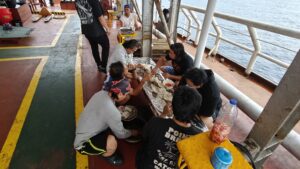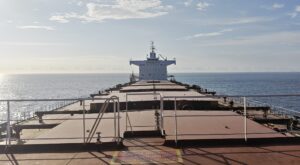Basahin ang artikulong ito sa tagalog.
Maritime transportation is widely recognized as a significant component of global economy and international trade. Seafarers are the trained experts of this sector, whose job is to oversee and guarantee the effective operations of ships (International Maritime Organization, 2020). They ensure that the goods and raw materials will reach the ports of the country safely which contributes a lot of money to the Philippine economy. There are 1,892,720 seafarers around the world with Philippines being the greatest supplier, accounting or 13.33% of all officers and ratings based on BIMCO and the International Chamber of Shipping (ICS)’s 2021 Seafarer Workforce Report on the Global Supply and Demand of Seafarers.
Some Filipino seafarers entered the maritime industry to fulfill their dreams of traveling to different countries or due to the family influence in their career choices. Majority of them became a seafarer to provide financial assistance for their loved ones in the Philippines. Aside from the salary and benefits that they receive from their company, they had an opportunity to explore different places, culture, and interact with different kinds of people. However, the life of seafarers on board is not that easy since there are a lot of risks and challenges associated in their line of work (Toygar, Nart, & Yilidirim, 2023). These difficulties stem from various aspects of seafaring, including long separation, demanding work conditions, harsh weather conditions, and physical fatigue from sleep deprivation (NMP, 2022).
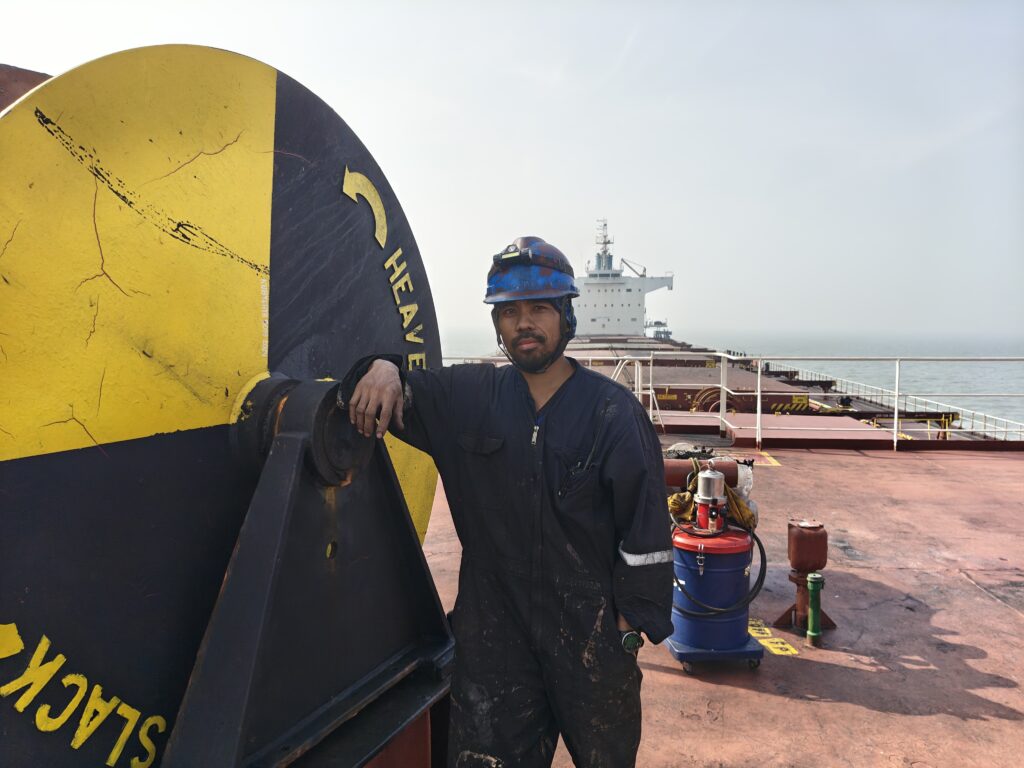
There are a lot of factors that contribute to their stressors, which include ship safety, piracy, port state control, and harsh weather conditions. Beyond the dangers they face in an open sea, they also battle emotional toll. Seafarers are on board for up to nine months and the absence and distance from their loved ones affect them in different ways. Some of them feel loneliness and emotional exhaustion due to the long separation which contributes to their mental struggles. 51.5% to 66.5% of seafarers experience work-related psychosocial stress because of family related concerns (Jonglertmontree et al., 2022).
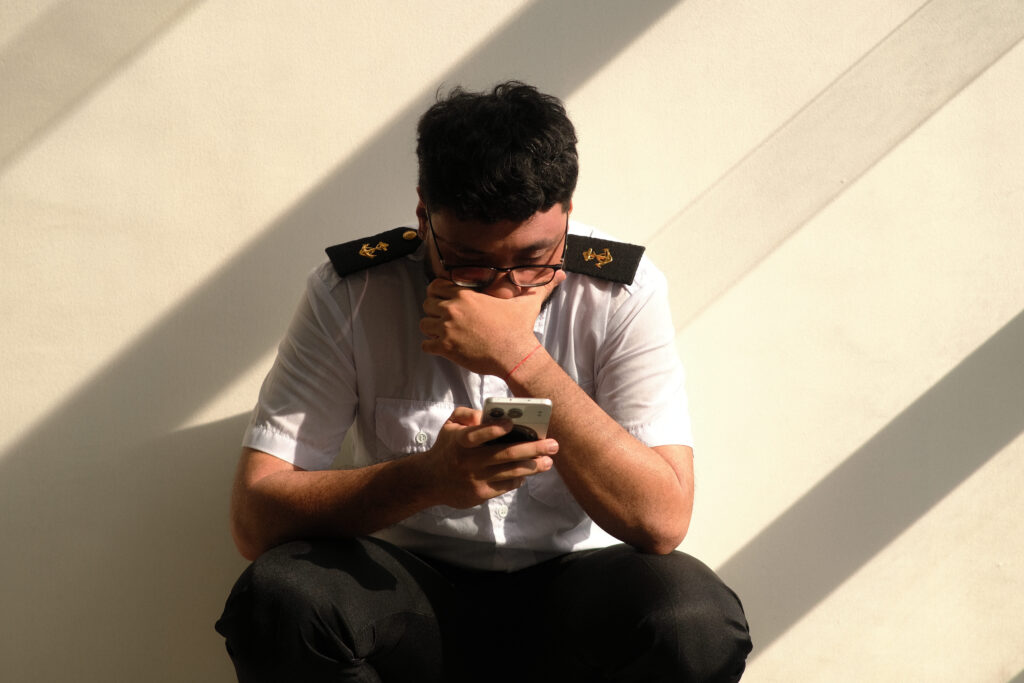
When they are feeling homesick and missing their loved ones, social media platforms have been their lifeline. It’s very important for them to contact them whenever they have free time. The invisible struggles that they go through every single day are real and often neglected by other people. Despite the challenges, they remained strong, and their loved ones are the ones who keep them going. Aside from that, there are at least 13 organizations and communities in the Philippines listed in the “Seafarers’ Welfare Centre Index” created by the International Transport Workers’ Federation (ITF) that can help and address the growing concerns of seafarers and their families.
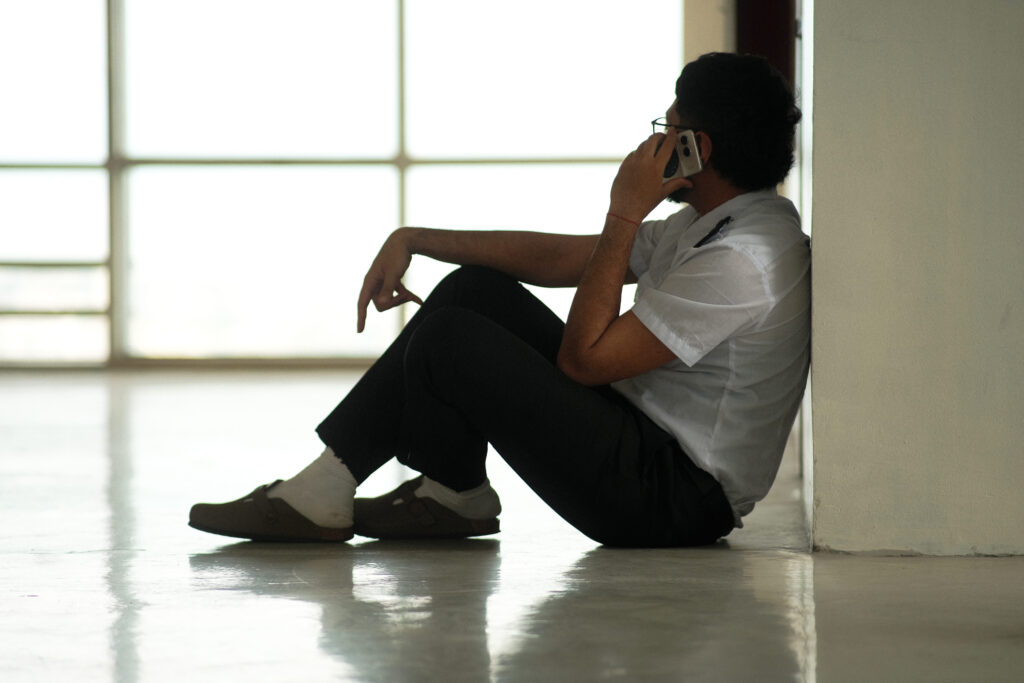
Stella Maris is a catholic institution that provides helps, support, and accommodation for seafarers, fishers, and their loved ones. Another organization is called Luneta Seafarers’ Center that provides Filipino seafarers an avenue to promote career opportunities in the maritime sector (Bajo & Galupo, 2012). However, the Manila International Seafarer’s Center is a facility funded by AMOSUP (Associated Marine Officers’ and Seamen’s Union of the Philippines). The recreation center is open to all Filipino seafarers, both working and retired, and can accommodate up to 40 individuals. Lastly, Mission to Seafarers is an organization that also provides help for seafarers worldwide. Through local activities, their Family Support Network (FSN) program gives assistance to seafarer families.


